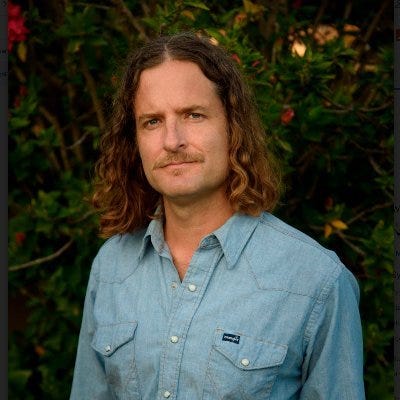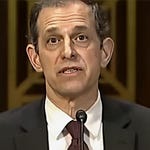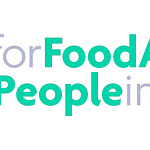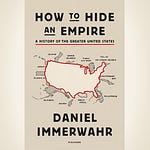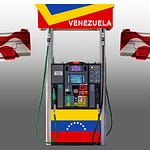Counterpunch’s Joshua Frank joins Ralph to discuss his new book, “Atomic Days: The Untold Story of the Most Toxic Place in America” about the Hanford Nuclear Reservation in Washington State— the Cold War plutonium manufacturing facility that even after a $677 billion taxpayer clean-up bill still leaks radioactivity. And immigration lawyer extraordinaire, Susan Cohen, regales us about her experience representing asylum seekers and refugees as chronicled in her book “Journey From There to Here: Stories of Immigrant Trials, Triumphs and Contributions.” Plus, Ralph makes one final pitch before the midterms for “Winning America.”
Joshua Frank is an investigative journalist and the managing editor of the political magazine CounterPunch. He is also an author— his latest book is Atomic Days: The Untold Story of the Most Toxic Place in America.”
Everyone would agree that any amount of money should be spent to clean this place up (Hanford Nuclear Reservation in Washington State), but if it’s lining the pockets of private corporations and the job’s not getting done, then something’s wrong.
Joshua Frank, author of Atomic Days: The Untold Story of the Most Toxic Place in America
That’s their answer (to radioactive waste)—tarps. They don’t have an answer. Because it’s a very technical, very laborious process. And, I would argue, takes more ingenuity in figuring out how to clean this up than it did to produce it in the first place.
Joshua Frank, author of Atomic Days: The Untold Story of the Most Toxic Place in America
Susan Cohen is an immigration attorney and founding Chair of Mintz Levin’s Immigration Practice. She is president of the board of the Political Asylum/Immigration Representation (PAIR) Project, and led a team working with the American Civil Liberties Union of Massachusetts to obtain a temporary restraining order on Trump’s 2017 Travel Ban. She is the author of Journeys From There to Here: Stories of Immigrant Trials, Triumphs and Contributions.
The fact that there are so many authoritarian regimes and corrupt regimes that we have had a hand in supporting over the years—where people can’t get justice when they’ve been egregiously harmed, or where the facts are evident and there’s not a question about what happened— is just another indication of the kinds of intolerable life situations that people face in these countries where they truly have to escape for their very lives.
Susan Cohen, author of Journeys From There to Here: Stories of Immigrant Trials, Triumphs and Contributions
The stark choice on November 8th is between a fascist/autocratic party and one that supports a major social safety net for tens of millions of Americans and their children. For anybody who says, “What about third parties?” I say, “Go for it.” But you know what’s going to happen on November 8th— it’s either going to be the Republican or the Democratic candidates for the duopoly. And there's never been a bigger gap in domestic policy— they’re very similar on empire— than at the present time.
Ralph Nader



